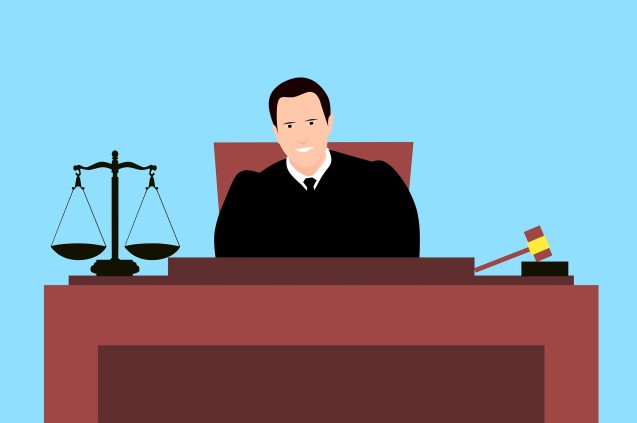Before your next summary-judgment motion, be sure to read Sandoval v. County of San Diego (9th Cir. Jan. 13, 2021) No. 18-55289, holding that perfunctory evidentiary objections are disallowed, and summarizing other objections that simply don't apply on summary judgment.
In Sandoval, a man on probation swallowed a lethal amount of meth rather than let deputy sheriffs find it, and died while in his holding cell. His wife brought suit in state court on both state law claims and section 1983. The suit was removed to federal court as to the section 1983 claim.
The County moved for summary judgment. In response to plaintiff's evidence in opposition, the County "submitted boilerplate one-word objections" based on relevance, hearsay, and foundation. The objections were asserted without explanation. The court sustained all the objections, also without explanation.
"This decision," the Ninth Circuit held, "which had the effect of striking crucial evidence from the summary judgment record, was an abuse of discretion."
The lack of any explanation was a factor, and certainly an annoyance, as it forced the Court to carefully review the record to understand the basis for the objections. That done, the Court concluded "the objections were meritless, if not downright frivolous."
Even though plaintiff failed to respond to the objections before the district court sustained them, the Ninth Circuit reversed.
Here are some key points to add to your MSJ checklist:
1. Relevance objections on summary judgment motions are improper. As the Ninth Circuit observes, relevance objections are redundant on summary judgment, because the entire function of the motion is to determine whether there is relevant evidence. As the Court puts it: "if evidence submitted on summary judgment could create a genuine dispute of material fact, it is, by definition, "of consequence in determining the action," and therefore relevant. Id. Conversely, if the submitted evidence does not create a genuine dispute of material fact, there is no need for the court to separately determine whether it is relevant because, even assuming it is not, it will not affect the ultimate summary judgment ruling."
Here, the relevance objections lacked merit as to first-hand observations, and a medical expert report, which "go[] to the central issues in the case."
(I do not know of any similar California authority, but this is a logical analysis and not inconsistent with any rule I am aware of.)
2. Hearsay may be considered in opposition to summary judgment. Under Ninth Circuit authority, the form of the evidence opposing summary judgment need not be admissible so long as the contents would be admissible at trial. "If the contents of a document can be presented in a form that would be admissible at trial—for example, through live testimony by the author of the document—the mere fact that the document itself might be excludable hearsay provides no basis for refusing to consider it on summary judgment." The Court cites Fraser v. Goodale (9th Cr. 2003) 342 F.3d 1032, 1036-37, holding that the plaintiff's diary could be considered on summary judgment because she could testify consistent with its contents at trial.
Here, plaintiff's evidence included plaintiff's expert report, which, though hearsay, contained opinions to which the expert would testify at trial.
(This Ninth Circuit precedent is contrary to the rule in California, where declarations submitted to support or oppose motions for summary judgment must be based on personal knowledge. Code Civ. Proc., § 437c, subd. (d); Perry v. Bakewell Hawthorne, LLC (2017) 2 Cal.5th 536, 541 ["[T]he summary judgment statute still requires the evidence provided in declarations to be admissible at trial."].)
3. An objection to part of a document must identify which part. The Court notes: "And to the extent the defendants intended to object to only parts of the documents, their unexplained generalized objections were insufficient to raise such an objection. See Fed. R. Evid. 103(a)(1)(B); United States v. Holland, 880 F.2d 1091, 1095 (9th Cir. 1989) ("Holland's blanket objection to the admission of the tape does not preserve an objection to failure to redact the tape.")."
4. Foundation objections must be timely and descriptive so as to permit the party offer the evidence to cure the defects. The Court states: "As for the foundation objections, "an objection to admission of evidence on foundational grounds must give the basis for objection in a timely way to permit the possibility of cure." Jerden v. Amstutz, 430 F.3d 1231, 1237 (9th Cir. 2005); accord 21 Charles Alan Wright & Arthur R. Miller, Federal Practice and Procedure § 5036.7 (2d ed. 2020 update). The defendants' one-word objections for "foundation" fell well short of providing Plaintiff with notice of the specific ground of objection and, consequently, what could be done to cure any defects."
(The rule is similar in California. See Evid. Code, § 353, subd. (a) [an evidentiary objection must "make clear the specific ground of the objection"]. To preserve an objection of lack of foundation for appellate review, the objection must specifically state the foundational defect. See Bank of America v. Taliaferro (1956) 144 Cal.App.2d 578, 582; People v. Modell (1956) 143 Cal.App.2d 724, 729.)
Evidentiary objections are a major trap for the unwary on summary-judgment motions. Solo practitioners may wish to consult appellate co-counsel to help spot-check.
(Thanks to Prof. Shaun Martin for bringing attention to the case.)
Tim Kowal helps trial attorneys and clients win their cases and avoid error on appeal. He co-hosts the Cal. Appellate Law Podcast at www.CALPodcast.com, and publishes a newsletter of appellate tips for trial attorneys at www.tvalaw.com/articles. Contact Tim at [email protected] or (714) 641-1232.

